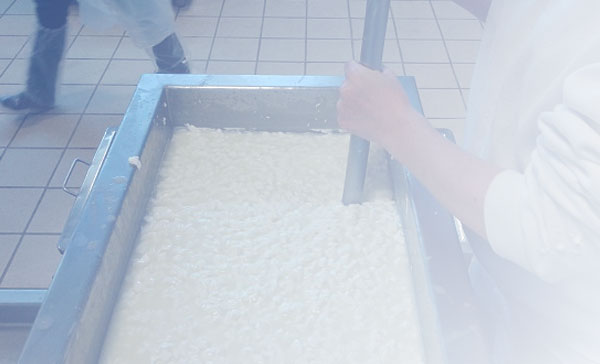
Systems and technologies of animal production

This research line focuses on the parameters that define milk quality for different species (cows, sheep and goats). We also assess how milk quality can be affected by the factors concerning the animals themselves and their management. We analyse classical milk properties including the physical-chemical parameters, chemical composition and sanitary and hygiene quality. In recent years, our research has focused on the detection of microbial inhibitors both in milk and milk products such as cheese and yoghurt. We also analyse the effect of antimicrobials on cheese and yoghurt manufacturing processes. In particular, we concentrate our efforts on improving milk productivity and quality in Murciano-Granadina goats and the Guirra sheep breed, which is native to the Valencia region.
Researchers: Pilar Molina, Cristòfol Peris y Martín Rodríguez

Milking technology and animal production systems
We develop and test new materials and ways to improve the conditions in which milking is performed and automated. We also evaluate milking routines and implement computer applications in order to calculate, manage and maintain the milking equipment. We collaborate with the CITA-IVIA research institute and the farmers’ association AMURVAL in recording milking characteristics (emission kinetics, morphology and mastitis) to enhance the use of automated milking. We also participate in maintaining the biodiversity of the local Guirra sheep breed and test new ways of using by-products in the nutrition of small ruminants.
Researchers: Nemesio Fernández, Cristòfol Peris y Martín Rodríguez

Livestock and Environment/h4>
Our aim is to adapt and improve livestock production in line with environmental and welfare concerns. We measure atmospheric pollutants (ammonia, greenhouse gases and particulate matter) generated in livestock farms and related facilities such as manure storage systems. We assess mitigation options based on animal production systems. We characterise animal excreta (manure and slurries) from an environmental point of view, and determine the potential conversion to biogas. We also work on welfare engineering, and contribute to animal welfare by improving the environmental conditions inside livestock houses.
Researchers: Salvador Calvet, Fernando Estellés y María Cambra


